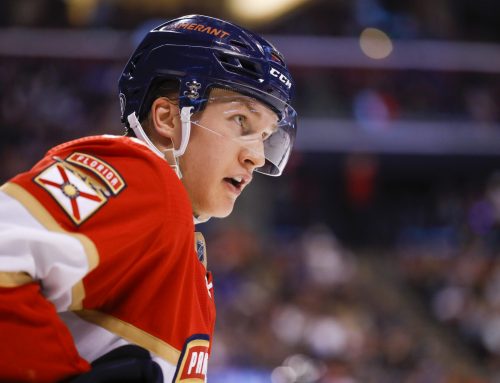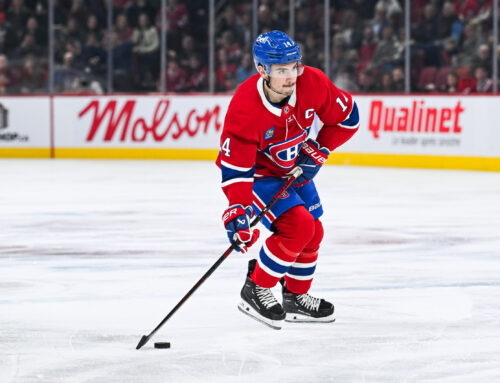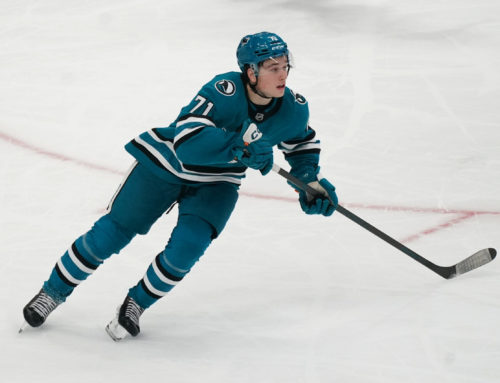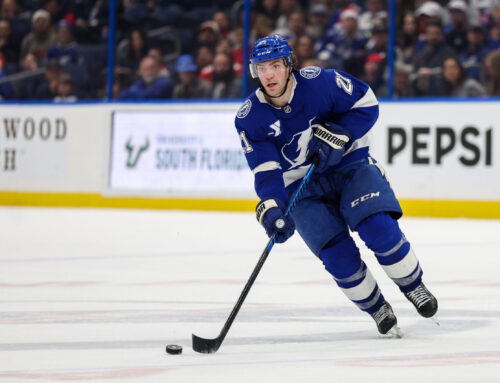
Who’s the better own? A close look at Zach Parise and Corey Perry…
This week's match is between two wingers – Zach Parise and Corey Perry – who I've wanted to cover in the past, except I didn't think their stats and projections aligned well for comparison to each other or another particular player. But given that they're pretty well aligned on paper as of now, I figure it's time to let you know which is likely to be the better fantasy own next year and in seasons to come. Let's fire up this Cage Match!
3.79 (Z.P.)
2.91 (C.P.)
0.27 (Z.P.)
0.22 (C.P.)
2011-12
0.39 (Z.P.)
1.58 (C.P.)
1.14 (Z.P.)
0.86 (C.P.)
0.79 (Z.P.)
0.56 (C.P.)
3.57 (Z.P.)
3.46 (C.P.)
0.17 (Z.P.)
0.28 (C.P.)
Perry's data is definitely concerning, as his 2014-15 output in every category represents either his worst (Shots, PP Points) or second worst (PIM, Hits, Blocked Shots) average over these four seasons. And in all but two categories (Hits and Shots), both of his two best outputs were in 2011-12 and 2012-13.
Parise has similar issues, as his Hits, Blocked Shots, and Shots over the past two seasons represent his bottom two outputs from the four campaigns. And although his PIMs are up, they're still are far cry from even Perry's lowest numbers. All in all, poolies in multi-cat leagues should take heed of the generally decreasing numbers from both players in these areas.
Luck-Based Metrics
|
Season |
Personal Shooting Percentage |
PDO/SVSP (5×5) |
IPP (5×5) |
IPP (5×4) |
Offensive Zone Starting % (5×5) |
|
2014-15 |
12.9% (Z.P.) 17.5% (C.P.) |
1018 (Z.P.) 1022 (C.P.) |
75.0% (Z.P.) 72.3% (C.P.) |
66.7% (Z.P.) 50.0% (C.P.) |
62.2% (Z.P.) 52.1% (C.P.) |
|
2013-14 |
11.8% (Z.P.) 15.4% (C.P.) |
1001 (Z.P.) 1028 (C.P.) |
70.0% (Z.P.) 79.7% (C.P.) |
77.8% (Z.P.) 57.1% (C.P.) |
61.7% (Z.P.) 50.3% (C.P.) |
|
2012-13 |
9.9% (Z.P.) 11.7% (C.P.) |
974 (Z.P.) 1017 (C.P.) |
70.4% (Z.P.) 69.7% (C.P.) |
64.7% (Z.P.) 50.0% (C.P.) |
63.3% (Z.P.) 48.8% (C.P.) |
|
2011-12 |
10.6% (Z.P.) 13.4% (C.P.) |
986 (Z.P.) 980 (C.P.) |
83.7% (Z.P.) 71.8% (C.P.) |
42.9% (Z.P.) 64.5% (C.P.) |
54.2% (Z.P.) 48.6% (C.P.) |
For Perry, we can see from his 2013-14 data that his nearly point per game output didn't come from unsustainable good luck, as although his PDO and 5×5 IPP were the highest among all four of these seasons, they weren't much higher than in other seasons. Yet that can't exactly be looked upon as good news either, since it begs the question why he was unable to produce as well despite having at least somewhat similar numbers in 2011-12 and this season. Moreover, this season also has him receiving his highest OZ% among these four, and a personal shooting % that's on pace to be the highest of his entire career, so the fact that he's below a 70 point pace is disconcerting.
Parise's numbers are far from ideal as well. In his case, 2013-14 saw him achieve combined IPPs of nearly 150, which is quite high. And that was on top of an OZ% that showed he's getting every chance to score and a Personal Shooting % near his career average. Yet despite those factors, he didn't produce at even a 70 point pace, whereas Patrick Kane – the only other forward with an OZ% above 61.7% and combined IPPs of 150 or more last season – provided point per game scoring. The conclusion that has to be drawn is Parise's simply not generating enough offense to translate to elite production.
Ownership, Value and Injuries
In Yahoo leagues, Parise was drafted on average as the 8th LW (his only eligible position), while Perry was drafted as the 2nd RW (his only eligible position). Since then, Parise – who's now 98% owned – has held steady as the 9th rated LW, whereas Perry – despite still being owned in 99% of leagues – has plummeted to become only the 24th rated RW. The fact that Perry has somehow remained so widely owned is likely in part because poolies invested so much to get him; however, it's also indicative of Perry now having a much higher perceived value than actual value. Meanwhile, Parise is a perfect example of a WYSIWYG type of player whose perceived value and actual value are nearly identical.
Unfortunately, that same predictability also applies to Parise's recent propensity to get injured, which has earned him a spot as a Band-Aid Boy trainee. In fact, while prior to this season Perry had missed only 11 total games in the previous six campaigns, Parise missed more than that last season alone, plus is on track to miss another eight this season. And of course there's the 69 missed games in 2010-11. Simply put, Parise presents a bigger injury risk.
Who Wins?
Honestly, there's really no "winner" here. But don't think neither player is worth owning, as that's not the case.
Parise is a 65-point LW with similar perceived and actual value. He's a risky own in multi-cat leagues, due to what looks to be fading production in some key categories. In one-year points leagues, he's a solid guy to grab once the 70+ players are off the board but before reaching for riskier guys who might get more than 65 points but just as likely could fall below 60.
In keeper leagues, you might want to pry Parise away from a frustrated owner who was hoping for 70+ point value and is now willing to sell him for an artificially low price. Or in a similar vein, you can see about trading him to another GM who might still view Parise as having 70+ point potential and is willing to give you that kind of value in return. Of course, you could also just keep him, especially if you need to count on his 65 points among other players on your roster who might have less predictable output.
Perry's situation is more interesting. Were it not for his 81 points last season, plus not too distant memories of his 98 point season, his perceived value would be closer to his apparently declining actual value. But instead, Perry is more widely owned than Parise despite barely ranking in the top 25 among RWs for this season (versus Parise being a top 10 LW).
If you own Perry in a keeper, you need to hold him until next season, since other GMs will point to his subpar 2014-15 campaign and try to talk down his price. But if he shows even brief signs of rebounding in 2015-16, then poolies should be quick to remember his glory days and warm back up to him, giving you a chance to trade him for what likely would be decent value considering he seems to genuinely be starting a downward phase in his career. In one year leagues, chances are someone will reach for Perry before he rightfully should be drafted – a function of his residual perceived value.





 SEA
SEA CHI
CHI OTT
OTT EDM
EDM DAL
DAL STL
STL ANA
ANA FLA
FLA CBJ
CBJ L.A
L.A
